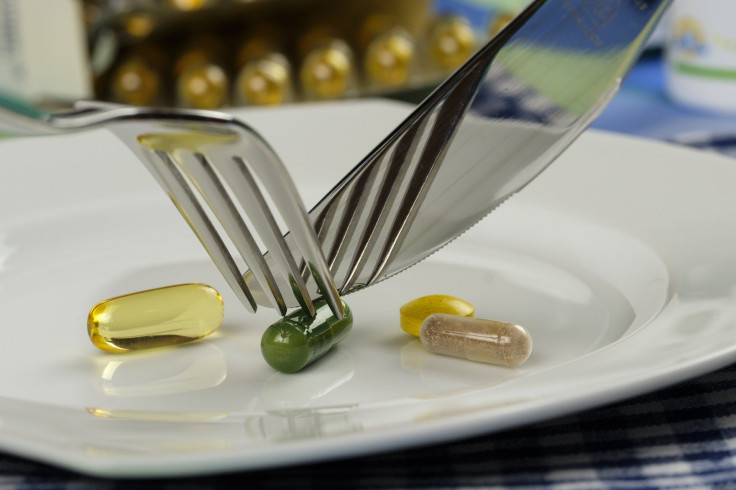9 Prohibited Stimulants Detected In Weight Loss And Sports Supplements
KEY POINTS
- Researchers tested weight loss and sports supplements for stimulants
- They found nine different prohibited stimulants
- Some of the products even combined up to four stimulants
Do you use dietary supplements? Researchers found traces of various prohibited stimulants in several weight loss and sports supplements.
Some people may see dietary supplements as an integral part of their diets, but the products are actually estimated to be responsible for tens of thousands of emergency room visits in the U.S. every year, the researchers of a new study said. Among them, weight loss and sports supplements have disproportionately contributed to hospital visits. But exactly which ingredients cause the negative health effects are unknown.
Deterenol, for instance, has not been approved for humans in the U.S. and is even prohibited to be used in dietary supplements. But it has still been detected in several supplements in the U.S. In Europe, supplements with deterenol have even been linked to "serious adverse effects including sudden death."
Supplement 'Cocktails'
For their study, published in the journal Clinical Toxicology, the researchers sought to find exactly which experimental stimulants are in the dietary supplements labeled to have deterenol or the other names for it such as isopropylnorsynephrine and isopropyloctopamine.
To do this, they analyzed 17 brands of weight loss and sports supplements. They found that the products contained nine prohibited stimulants, with less than half of the products containing just deterenol as the stimulant.
Many of the products contained multiple stimulants, with some even combining up to four stimulants in a single product. In total, the researchers found eight different stimulant combinations, none of them having been tested in humans.
"The risks of consuming these combinations of stimulants is unknown," the researchers wrote.
One of the other stimulants they found, phenpromethamine, was last sold as an inhaler around the time of World War II, reported Live Science. It is not approved for oral use by the FDA and has been banned in competitive sports by the World Anti-Doping Agency. Neither it nor deterenol has been approved for oral use in the U.S, or anywhere else, the researchers noted.
FDA Action
According to the researchers, the Food and Drug Administration (FDA) has not always taken action when it comes to removing adulterated supplements from the market.
"Our study provides further evidence that the FDA may fail to act even when the agency's own scientists identify adulterated supplements, as appears to be the case for deterenol," the researchers wrote.
But even if it does, the substances may still remain available in the market. For instance, a previous study found that two-thirds of 27 brands previously subject to an FDA recall still contained the prohibited drug even up to four years after the recall, the researchers said.
"As soon as the FDA warns about a stimulant, new ones, close variants of them tend to appear," study lead author, Dr. Pieter Cohen of the Cambridge Health Alliance and Harvard Medical School, told Live Science.
As such, the researchers are urging the FDA to warn consumers about these potentially risky stimulant cocktails and remove them from the market.
In a statement to Live Science, the FDA said that it is reviewing the study and noted its appreciation for such studies for raising awareness on the matter.

© Copyright IBTimes 2025. All rights reserved.






















